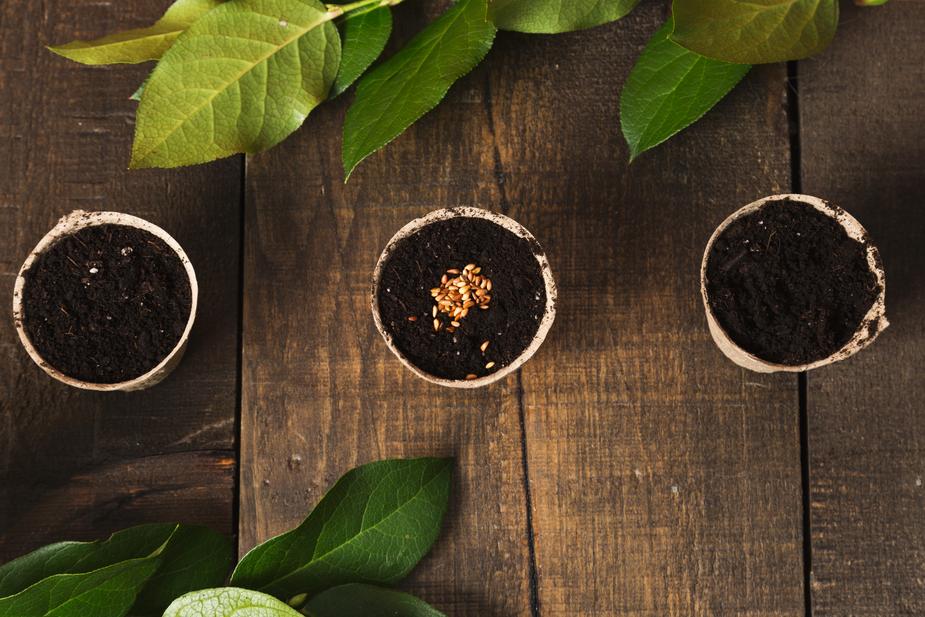3 Easy Steps Toward a Zero-Waste Home
The world has a waste problem. And of the 1.3 billion tons of waste produced globally each year, the United States is responsible for 254 million tons of it—nearly 20%, despite making up only about 5% of the global population. The World Bank estimates this to be about 5.6 pounds per person per day, or just over 2000 pounds per person per year.

By Ashley Chin
July 31, 2018
The world has a waste problem. And of the 1.3 billion tons of waste produced globally each year, the United States is responsible for 254 million tons of it—nearly 20%, despite making up only about 5% of the global population. The World Bank estimates this to be about 5.6 pounds per person per day, or just over 2000 pounds per person per year.
Although this number is staggering, it is also a number that we as individuals can take steps to change. By reducing the amount of material your household takes in and throws out, you can help reduce your impact on the environment. Going zero-waste (or even low-waste) is a great way to do your part and switch up your lifestyle.
But how do you get started? The first steps are simpler and more convenient than you might think.
Part One: Greener Groceries
1. Start an herb and vegetable garden.
Growing your own herbs and vegetables is an easy—and probably the most fun—way to reduce the waste brought into your home. If a portion of your produce comes straight from your garden, not only is it fresher than items purchased at the grocery store, but there is no need to package, preserve, or transport it.
Living in an apartment or other space without room for a large garden? Not to worry—small-space balcony gardens are both practical and easy to start. Alternatively, you may opt to seek out a community garden, plots of land which are cultivated collectively by members of a local neighborhood.
2. BYOB – Bring Your Own Bag.
About 18 billion pounds of plastic end up in our oceans every year, damaging reefs and hurting many species of ocean wildlife . Bringing your own reusable grocery bag is a great way to reduce waste from plastic bags—and in some US states, you might not even have much of a choice.
Luckily, eco-friendly bags are easy to find. Between a whole host of online shops, sustainable fashion retailers, and local craft fairs, you are likely to find the perfect eco-bag to match your personal taste and style.
Forgot your eco-bag at home? Many grocery stores sell reusable bags at checkout or have paper options available instead. And if you do need a plastic bag for any reason—disposing of food waste, for instance—try going for a compostable option instead.
3. Shop at farmers’ markets or join your local co-op.
Farmers’ markets have ballooned in popularity in recent years, as the support-local movement has continued to grow across the country. You might not have heard about it, but there is usually a farmers’ market somewhere in or near your neighborhood—even in metropolitan cities.
Farmers’ markets give many urban or suburban shoppers access to fresh, local produce and a chance to see a variety of what their local farms have to offer. Items at farmers’ markets are also not typically pre-packaged, and shoppers are encouraged to bring their own eco-friendly, reusable bags.
No idea where you might find the nearest farmers’ market? Check out one of the links below:
- USDA National Farmers Market Directory (US)
- LocalHarvest.org (US)
- Australian Farmers’ Markets Association (AU)
- FARMA (UK)
- London Farmers Markets (UK)
Another option for seeking out local or sustainably produced groceries is joining a local co-op. The co-operative movement has been gaining ground over the past decade, as many people are looking for alternatives to large grocery chains. Co-ops are democratically-run associations that members jointly own and operate, and often goods are purchased in bulk, therefore minimizing waste and unnecessary packaging. These small stores may often go unnoticed during your day-to-day commute, so check online listings to find what is available in your area:
- Cooperative Grocer Network
- LocalHarvest.org
- National Co+op Grocers
- Neighboring Food Co-ops Association
For most, a zero-waste lifestyle is a big leap to make. But with small, incremental changes to the way you think about the everyday items you use, you can easily put yourself on the path to a low-waste household and reduce your environmental impact.
Looking for even more ways to reduce your impact? Check out the next installment of our zero-waste two-part series—and subscribe to our blog using the buttons on the right for more from ADEC Innovations.
ADEC Innovations is a leading provider of ESG solutions, with expertise in delivering fully-integrated consulting, software, and data management services. To stay current on global sustainability issues, subscribe to our monthly newsletter, GreenWatch.
Related Articles
Sustainability, FCS, Waste Management
By George Lu on June 6, 2020
Sustainability | CDP | Sustainability Reporting | Scenario Analysis | TCFD
By Alex Donovan on March 24, 2020
Sustainability | Supply Chain | CleanChain
By Adrienne Garcia on March 10, 2020
Environmental Impacts | Sustainability | Forests | Organization
Be a sustainability leader.
Our team supports you no matter where you are on your Sustainability Journey. Talk to us today to learn more.




